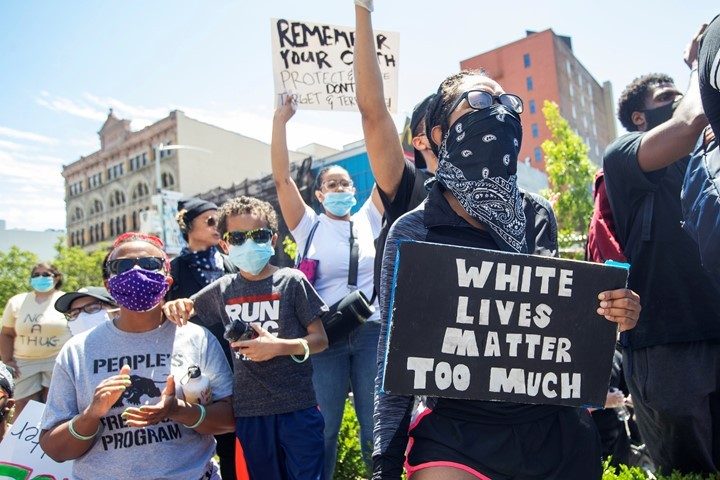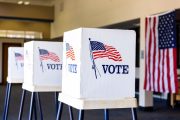
Eric Nelson, the defense attorney for the former Minneapolis police officer Derek Chauvin convicted of murdering George Floyd, filed a motion on Tuesday asking for a new trial on several grounds, including jury misconduct.
Nelson said that his client did not receive a fair trial for several reasons, including the judge’s decisions not to sequester the jury during the trial, not to change the location of the proceedings, and not to grant a new trial because of publicity that included the intimidation of the defense’s expert witnesses. Nelson also wrote “that the jury committed misconduct, felt threatened or intimidated, felt race-based pressure during the proceedings, and/or failed to adhere to instructions during deliberations.”
John Stiles, the deputy chief of staff for Minnesota Attorney General Keith Ellison, pushed back on Nelson’s filing, saying in a statement to ABC News that “the court has already rejected many of these arguments and the State will vigorously oppose them.”
However, Chauvin’s legal team specifically cited the court’s rejection of its request to change the hearing’s venue outside Minneapolis, with Nelson arguing in the filing that “the Court abused its discretion when it denied Defendant’s motion for a change of venue” and that publicity around the high-profile hearing escalated “the potential for prejudice in these proceedings.”
“The publicity here was so pervasive and so prejudicial before and during this trial that it amounted to a structural defect in the proceedings,” stated Nelson.
Nelson also tore into the court over its rules surrounding the jury, which he said were not strict enough and allowed jurors to digest outside media coverage of the trial.
“The Court abused its discretion when it failed to sequester the jury for the duration of the trial, or in the least, admonish them to avoid all media, which resulted in jury exposure to prejudicial publicity regarding the trial during the proceedings, as well as jury intimidation and potential fear of retribution among jurors, which violated Mr. Chauvin’s constitutional rights to due process and to a fair trial,” Nelson claimed.
“The jury committed misconduct, felt threatened or intimidated, felt race-based pressure during the proceedings, and/or failed to adhere to instructions during deliberations, in violation of Mr. Chauvin’s constitutional rights to due process and a fair trial,” Nelson concluded.
Indeed, in anticipation of the verdict and Black Lives Matter (BLM) activists’ decisiveness to employ violence should the jury decide to acquit Chauvin, American cities ramped up their security and called in the National Guard. Tensions were flared by seeming incitement of unrest in the streets from top Democrats, such as California Representative Maxine Waters, and even President Biden’s inappropriate expression of hope for the jury to reach the “right decision.”
BLM warned that “If George Floyd’s murderer is not sentenced, just know that all hell is gonna break loose…. Don’t be surprised when buildings are on fire.” The threat of violence was so high, Minnesota Governor Tim Walz declared a state of emergency and announced that he was preparing to bring in police officers from neighboring states in addition to the National Guard to respond to any violence. Minneapolis has been transformed into a fortress, with more than 3,000 National Guard troops drafted into the city and shops and businesses boarded up, with public schools returning to online instruction.
Elsewhere, in California, the former home was vandalized of a key defense expert witness in the Chauvin case, who testified last week that Floyd’s death was “accidental.”
Every big-city police chief and mayor in America understood and prepared for BLM’s threats of violence. Yet, we are to assume that the 12 jurors who convicted Chauvin of all charges were not influenced by this obvious reality. The judge, who made an unconstitutional decision not to sequester the jurors, himself acknowledged that Representative Waters (D-CA) had given the defense an appellate issue owing to the statements she made before the judge finally sequestered the jury. The American people can have no confidence that the verdict was not tainted by threats of violence outside the courthouse.
New evidence of an unfair trial keeps emerging. One of the jurors, Brandon Mitchell, an apparent BLM supporter, admitted that he didn’t tell the whole truth to get on the jury when he said he could impartially weigh the evidence. Mitchell’s bias definitely raises questions about his impartiality, legal experts believe.
The filing comes days after Minnesota prosecutors asked Judge Peter Cahill to deliver a severe sentence to Chauvin for the “particular cruelty” he displayed in Floyd’s killing.
Under Minnesota law, Chauvin will be sentenced for the most serious charge against him, second-degree murder. That charge carries a maximum of 40 years in prison.
Chauvin is currently scheduled to be sentenced on June 25.




